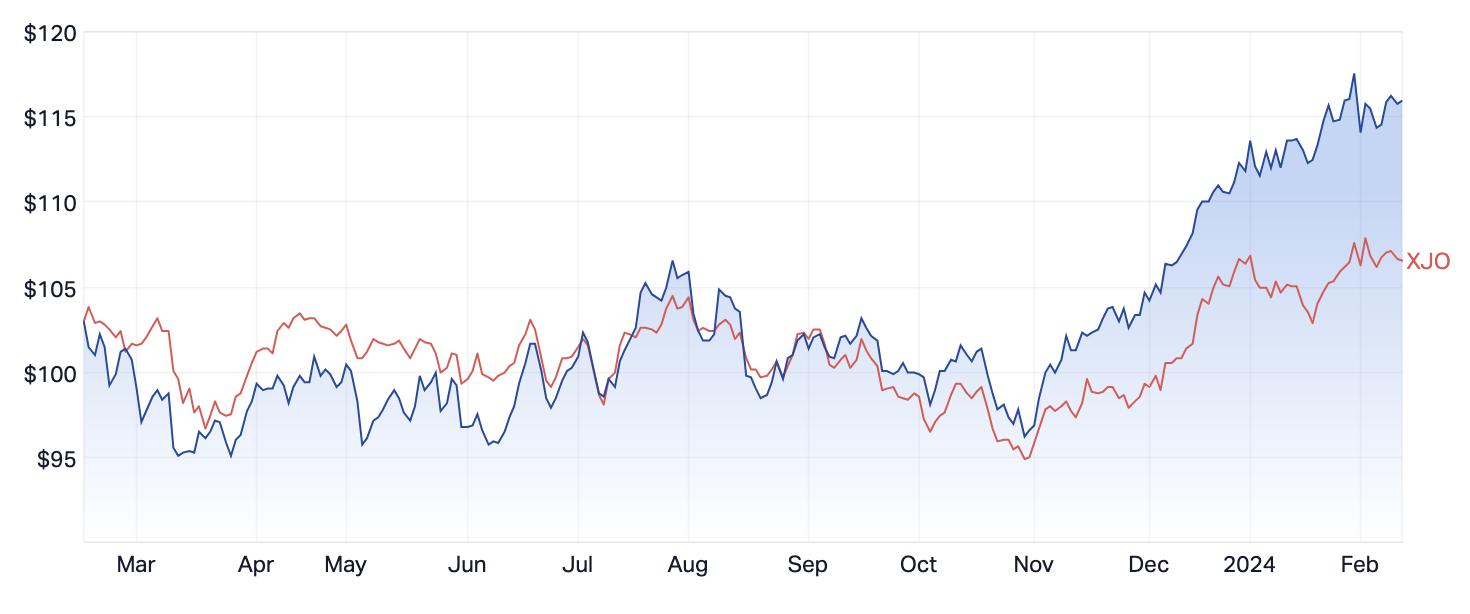Is CBA worth more than $100 a share?
Today's result from the Commonwealth Bank of Australia (ASX: CBA) - the nation's largest bank - was solid.
The bank narrowly beat analyst estimates on multiple fronts, including cash net profit after tax, earnings per share, interim dividends, and return on equity.
That's despite chief executive officer Matt Comyn noting that 2023 was an "increasingly challenging" year for many of CBA's customers - who, as readers will well know, continue to struggle with the rising cost of living.
"As cash rate increases have a lagged impact on households and business customers, we expect financial strain to continue in 2024, with an uptick in our arrears and impairments," Comyn said.
"We remain well-provisioned and capitalised, with capacity to navigate an uncertain economic environment. We will stay focused on our customers, offering personalised support and financial flexibility, and we will continue to invest in our franchise."
With this in mind, Marcus Today's Henry Jennings wasn't so crash-hot on CBA's result - particularly given that CBA, despite today's 2% sell-off, continues to trade at all-time highs.
So should investors be coughing up more than $100 a share for Australia's biggest bank? In this wire, Jennings dissects CBA's latest half-yearly result, and shares why he is torn on the bank's share price trajectory from here.
Key Financial Results
- Cash NPAT of $5.02 billion vs estimates of $4.95 billion
- Earnings per share of $3.00 vs analyst estimates of $2.93
- Interim dividend $2.15/share (fully franked) vs estimates of $2.10/share
- Net Interest Income of $11.40 billion vs estimates of $11.47 billion
- NIM 1.99% vs analyst estimates of 2.00%
- ROE 13.8% vs analyst estimates of 13.7%
- Loan impairment expense (cash basis) of $415 million vs estimates of $537.5 million
- CET1 Ratio (APRA) 12.3% vs estimates 12.1%
- For more financial data on Commonwealth Bank, head to Market Index
.jpg)
1. In one sentence, what was the key takeaway from this result?
It was a solid but uninspiring result. Solid, especially on the credit side of things, but net interest margins (NIMs) were a little bit underwhelming.
2. Were there any major surprises in this result that you think investors should be aware of?
I don't think there were too many surprises. It was pretty much in line with what the market was going for. I guess one of the surprises was that the mortgage war is continuing. We saw that yesterday with Macquarie (ASX: MQG) sounding the alarm. They're going to be pushing aggressively into that market again, which some were hoping that they wouldn't, so market share is dwindling a smidge for CBA, but only by a smidge.
That pressure on NIM both from mortgage competition and from competition on deposits was something that investors weren't focusing on, hoping that the mortgage wars had finished last year, but it seems not.
3. Would you buy, hold or sell this stock on the back of this result?
Rating: HOLD
I have to say I was slightly negative on the back of this result, only because CBA is trading at an all-time high. It is hard to justify it based on this result. Retail investors love to hold it. So it's probably a hold for long-term investors, but for me, short term, I think it's going to drift a little bit lower and I'm not sure there is justification for the high share price given the backdrop of this profit number.
That said, it's hard not to like the Australian banks. They are such a big part of the index and I think $1 in every $10 invested in the market goes into CBA, as far as ETFs go, so that does make it compelling on that front. But valuation-wise, it's expensive. It deserves to be trading closer to $100. But whether it will, I suspect not.
4. What’s your outlook on this stock and the sector over the year ahead?
I think the interesting thing about the Big Four is the level of provisioning. Certainly, during the Hayne Royal Commission and the subsequent fallout from that, provisioning levels have been quite large. As a result, they do have the potential to smooth out the profit cycle to some extent. We haven't seen a huge jump in credit quality. So that is good news for the banks and the economy.
It seems that mortgage holders are handling higher rates, but I think given where the banks' share prices are at the moment, I would say they are more likely to drift sideways over the next three to six months based on the continued mortgage wars and that pressure on deposits as well.

5. Are there any risks to this company and its sector that investors should be aware of?
The main risk to CBA is the economy deteriorating - if we see a pickup in inflation and the RBA becomes more aggressive in terms of their rhetoric surrounding rate cuts and maybe even potentially talk about rate hikes again. I think that's highly unlikely, but it is a risk if we do see the economy start to slide.
6. From 1-5, where 1 is cheap and 5 is expensive, how much value are you seeing in the market right now? Are you excited or are you cautious about the market in general?
Rating: 3
I think a three in terms of value on the ASX. It probably got a little bit overbought and we've come back a little bit today. We may have to come back a bit more, in which case we move up the scale, but for the time being, I think it's a three.
Don't miss an ASX announcement this reporting season, set up and receive announcements direct to your inbox on Market Index: Create Alert Now
4 topics
2 stocks mentioned
1 contributor mentioned


